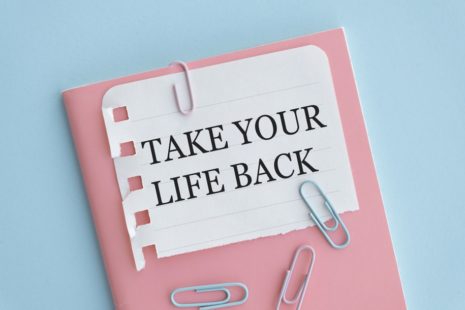Deciding to walk away from someone with mental illness can be an incredibly difficult and personal decision. It often comes after a long period of support, care, and effort to maintain the relationship despite the challenges posed by the mental health condition. This decision should be approached with sensitivity, compassion, and consideration for both your well-being and that of the person with the mental illness.
Here are some circumstances under which walking away might be considered…
1. Your Own Mental and Physical Health is at Risk
- If the relationship significantly harms your mental or physical health, safety, or well-being, it may be necessary to step back. This can include situations where you experience chronic stress, anxiety, depression, or physical harm as a result of the relationship.
2. Abuse or Toxic Behavior
- Relationships involving emotional, physical, or verbal abuse require immediate attention. Mental illness is not an excuse for abusive behavior, and protecting your safety and well-being is paramount.
3. Lack of Willingness to Seek Help
- If the person refuses to acknowledge their mental health issues or seek and adhere to treatment, and their condition is severely impacting the relationship, you may need to reevaluate your involvement. Support is essential, but it cannot replace professional treatment.
4. Codependency and Enabling
- Sometimes, efforts to help can turn into enabling or codependent behaviors, which are not healthy for either party. If your support is preventing the person from taking responsibility for their mental health or encouraging dependency, it might be time to reconsider your role.
5. Impact on Other Relationships and Responsibilities
- If the relationship consumes so much of your time, energy, and emotional resources that other important relationships (like those with family or friends) suffer, or if it interferes with your responsibilities and goals, it may be necessary to step back.
Making the Decision
- Consult with Professionals – Before making a decision, consider seeking advice from mental health professionals. Therapists, counselors, or support groups can offer guidance tailored to your specific situation.
- Communicate Clearly – If you decide to distance yourself, try to communicate your decision in a clear, compassionate, and respectful manner, focusing on your needs and well-being.
- Set Boundaries – You can love and care about someone but still set boundaries to protect your well-being. Clearly define what you can and cannot offer in terms of support.
After Walking Away
- Seek Support for Yourself – Leaving a relationship, especially under such complex circumstances, can be emotionally taxing. Seek support from friends, family, or professionals to process your feelings and experiences.
- Remember, It’s Not Giving Up – Choosing to walk away doesn’t mean you’re giving up on the person. It means you’re acknowledging the limits of what you can provide and prioritizing the well-being of both parties involved.
Every situation is unique, and there’s no one-size-fits-all answer. Walking away is a last resort, typically considered when all other options have been explored and the relationship is unsustainable. Taking care of your mental and emotional health is not selfish—it’s necessary.







